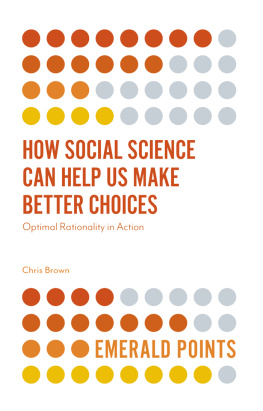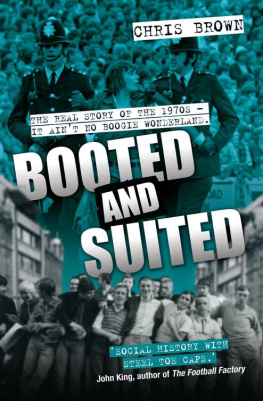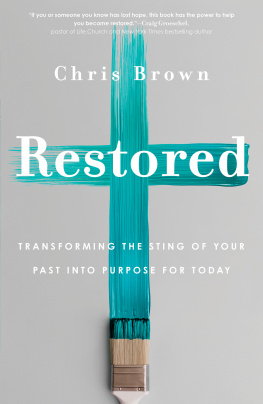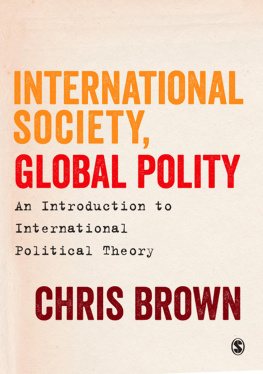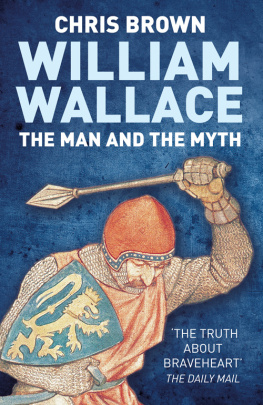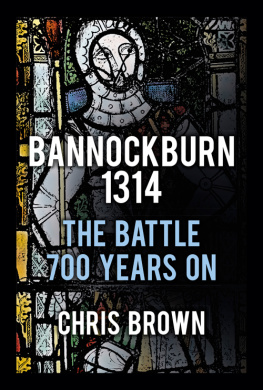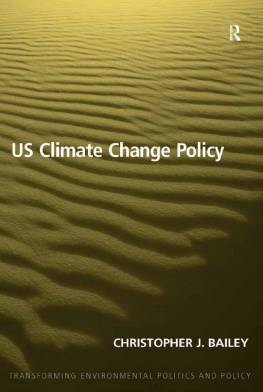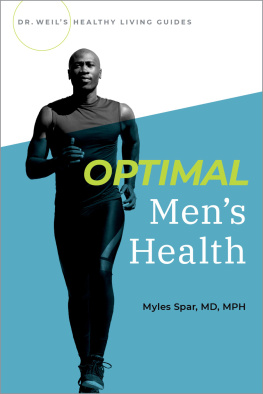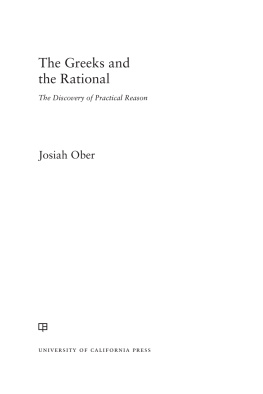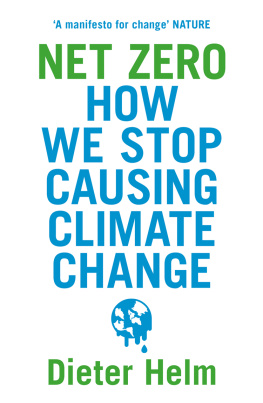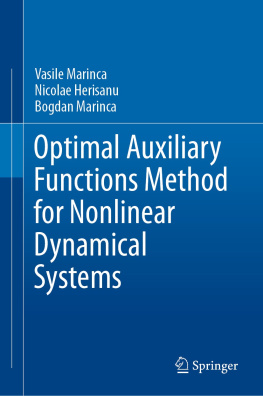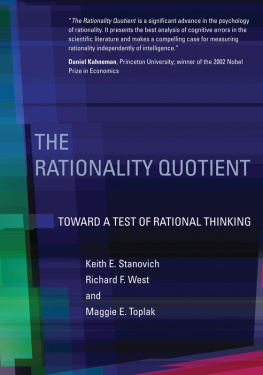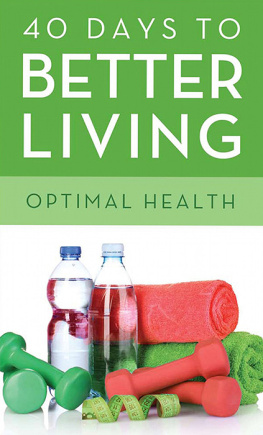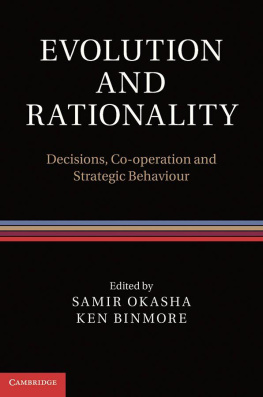HOW SOCIAL SCIENCE
CAN HELP US MAKE BETTER
CHOICES
Optimal Rationality in Action
HOW SOCIAL SCIENCE
CAN HELP US MAKE BETTER
CHOICES
Optimal Rationality in Action
BY
CHRIS BROWN
School of Education and Childhood Studies,
University of Portsmouth, UK

Emerald Publishing Limited
Howard House, Wagon Lane, Bingley BD16 1WA, UK
First edition 2018
Copyright 2018 Chris Brown
Reprints and permission service
Contact: permissions@emeraldinsight.com
No part of this book may be reproduced, stored in a retrieval system, transmitted in any form or by any means electronic, mechanical, photocopying, recording or otherwise without either the prior written permission of the publisher or a licence permitting restricted copying issued in the UK by The Copyright Licensing Agency and in the USA by The Copyright Clearance Center. No responsibility is accepted for the accuracy of information contained in the text, illustrations or advertisements. The opinions expressed in these chapters are not necessarily those of the Author or the publisher.
British Library Cataloguing in Publication Data
A catalogue record for this book is available from the British Library
ISBN: 978-1-78754-356-0 (Print)
ISBN: 978-1-78754-353-9 (Online)
ISBN: 978-1-78754-355-3 (Epub)

Dedicated to the memory of Helen Brown and her 103
wonderful years and to Vincenza Holland a true
stalwart in my life.
CONTENTS
ABOUT THE AUTHOR
Dr. Chris Brown is Professor of Education at the School of Education and Childhood Studies, University of Portsmouth. Chris has a long-standing interest on how evidence can and should but often doesnt aid education policy and practice. To that end he has authored four books (including Achieving Evidence-Informed Policy and Practice in Education: Evidenced (2017) for Emerald), several papers and has presented and keynoted on the subject at a number of international conferences in Europe, Asia and North and South America. Chriss other principal research interest is centered on the use of semiotic theory and analysis to find better ways to understand the complex problems we often face. This is his second book focusing on this area (following on from Scenes, Semiotics and the New Real: Exploring the Value of Originality and Difference (2015) for Palgrave Macmillan).
In 2015, Chris was awarded the American Educational Research Association Emerging Scholar award (Education Change SIG). The award is presented to an individual who, within the first eight years of their career as an educational scholar, has demonstrated a strong record of original and significant scholarship related to educational change. Chris was also awarded the 2016 AERA Excellence in Research to Practice award and the 2016 UCEA Jeffrey V. Bennett Outstanding International Research award.
ACKNOWLEDGEMENTS
Realising this book would not have been possible without the commitment and support of Kim Chadwick, Emerald publisher extraordinaire. Thank you for your faith in me. Thanks also to Ruth Luzmore for engaging with me to discuss and flesh out many of the ideas. Finally, thanks, as ever, to my family for their continued patience as I demand just five more minutes to get this sentence finished after saying exactly the same thing half an hour before.
INTRODUCTION
In a world beset with problems, how can we encourage people to act differently? It seems almost daily that new studies emerge telling us how human action is causing planetary degradation, how changes to our diets and how more exercise could lead us to live longer healthier lives, or that financially we are in danger of returning to the debt-related crises of the previous decade. At the same time how many of us adjust our behaviour in response to such information? How Social Science Can Help Us Make Better Choices seeks to provide a new way to think about why people make the choices they do and, vitally, the role social science can play in response.
I use the book to explore peoples reactions to optimal rational positions (or ORPs for short). ORPs are propositions that set out requirements for change. For example, the need to reduce carbon emissions to minimise the impacts of climate change is an ORP, as is the need for us to eat five items of fruit and veg a day. Other examples of ORPs include the suggestion that we should limit our alcohol consumption to 14 units per week
At the same time what is or is not an ORP needs to be rigorously defined. I suggest we can think of ORPs typically emerging as a result of: (1) a robust and credible evidence base in relation to current or potential new behaviours; (2) a well-reasoned argument (or theory of change), which provides this evidence with meaning; (3) a social, moral or value-based imperative setting out the need for change based on this meaning (or conversely, the consequences of not changing) and (4) buy-in to this imperative from a range of credible stakeholders. These four steps can be illustrated using the example of human-led climate change. For instance, according to the Consensus Project These four steps together clearly provide a compelling argument for us to engage positively with the need to reduce carbon emissions. Similar analyses can also be provided for each of the ORPs mentioned above.
Because they represent a combination of facts and values, ORPs are often Kantian in nature they involve should type statements relating to a desired outcome: for instance, we should reduce carbon emissions, we should eat five a day, we should recycle more, we should drink less alcohol and so on. At the same time this should will only hold for a given period this is because each and every ORP is capable of shifting over time as new evidence emerges, new arguments are formulated to explain the evidence or new imperatives arise. ORPs are thus contextual and situational rather than universal: eventually counter positions are likely to be established (Vico, 2002). However, for any given point of time the current set of ORPs are likely to represent the best route we have for improving peoples lives and achieving the type of society we want to live in.
At the same time, as we have seen in what is being described as the post truth era, there is a danger that potential counter positions are conceived using untrustworthy evidence, and nourished with spin and scant disregard of the facts by those with vested interests. One example of this is the denial by some of the need to tackle human-led climate change (Evans, 2017); a view held by 6% of the public (Leiserowitz et al., 2017). As such, for any given accepted ORP it should be the role of scientists and researchers to work towards understanding how it can be implemented and maintained, to challenge false positions and where appropriate to only support genuinely new ORPs to emerge and take hold.
At its core, therefore, this work is grounded in the humanist tradition. Like Petrarch the approach set out in this book recognises that, in a world of echo chambers, it is increasingly difficult to get alternative arguments heard by those with entrenched views. As such I seek to show how ORPs can be attained by understanding what is needed to change peoples perspectives and behaviours; and once this understanding has been reached a plan of action can then be put in place to help achieve this change. These two requirements, I argue, are totally within the reach and the purview of social scientists.

